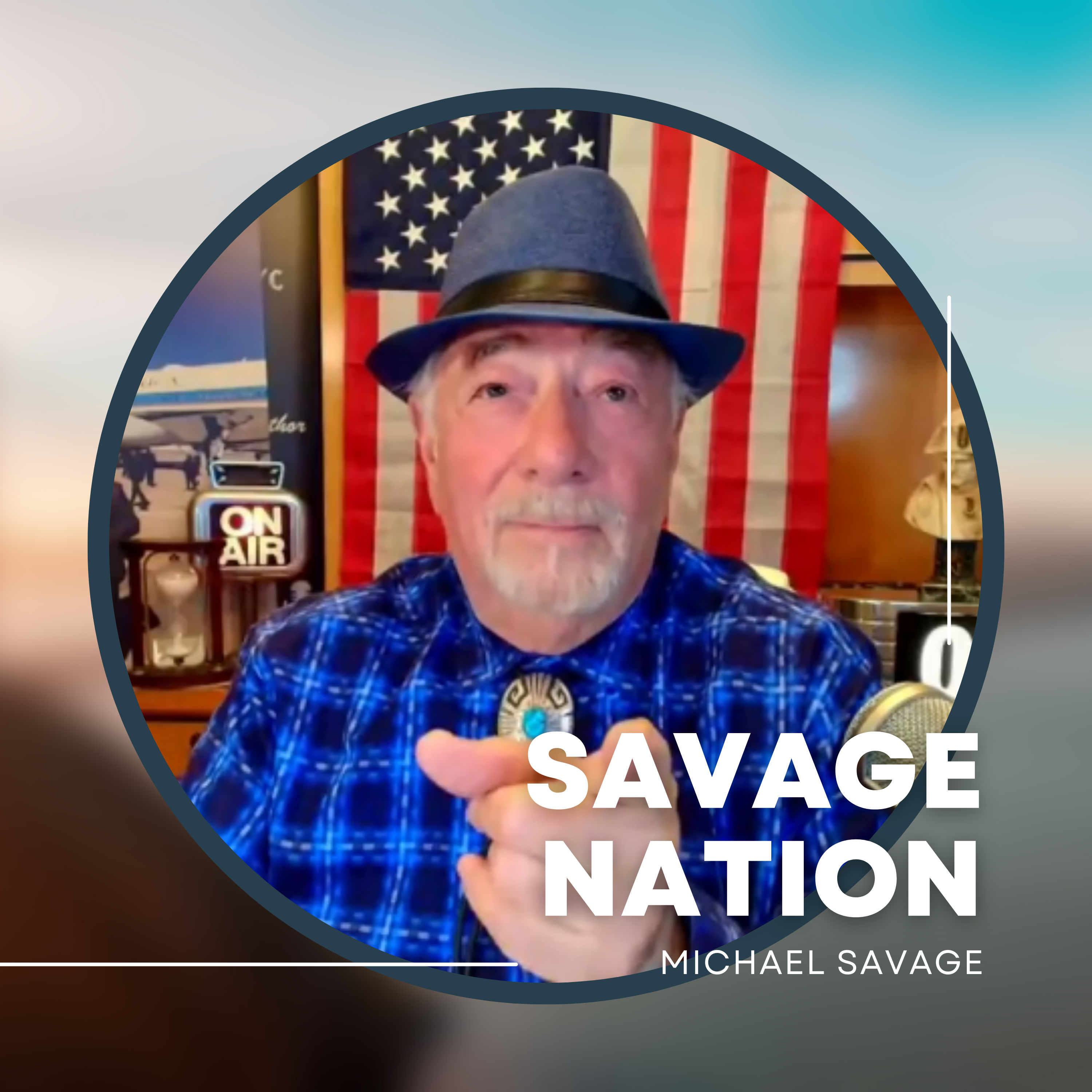
A Think First Podcast with Jim Detjen
Think First is a short-form podcast that makes you pause — before you scroll, share, or believe the headline.
Hosted by Jim Detjen, a guy who’s been gaslit enough to start a podcast about it, Think First dives into modern narratives, media manipulation, and cultural BS — all through the lens of gaslighting and poetic truth.
Some episodes are two minutes. Some are ten. It depends on the story — and the energy drink situation.
No rants. No lectures. Just sharp questions, quick insights, and the occasional laugh to keep things sane.
Whether you’re dodging spin in the news, politics, or that “trust me, bro” post in your feed… take a breath. Think first.
Visit Gaslight360.com/clarity to sharpen your BS filter and explore the 6-step clarity framework.
🚨Distorted (Advanced Copy) is set to release on October 14, and pre-orders are now available on Amazon and Barnes & Noble.
Reserve your copy today — and join me in cutting through the distortion.
Paperback and Kindle: Amazon
Hardcover: Barnes & Noble
A Think First Podcast with Jim Detjen
#76 When the Government Stops, Military Families Still Pay.
When Washington shuts down, the headlines talk about politics. But at kitchen tables in Kansas, California, and overseas bases, it’s military and veteran families who feel it first.
In this episode, Jim Detjen unpacks the gap between the story we’re told and the reality families live — from furloughed civilians to unpaid Border Patrol agents, to kids wondering why “back pay later” doesn’t buy Pop-Tarts tonight.
Featuring reporting from CBS and Reuters, the voices of families, and a simple metaphor — the “Three Buckets” — that explains the shutdown better than any press conference. Plus, why Blue Star Families is leading the fight to pass the Pay Our Troops Act… and how you can #SpotTheGaslight in the way shutdowns get sold to us.
Stay sharp. Stay skeptical. #SpotTheGaslight
Read and reflect at Gaslight360.com/clarity
Wichita, Kansas. Payday, minus two. Dad opens the fridge. Light flickers. Pickles. Catch up. One sad Tupperware no one trusts. He's a retired Air Force crew chief. 32 years. Now a civilian contractor on base. Or rather, was. His badge stopped working yesterday. Shut down. Mom, also a vet, scrolls the mortgage app like it might sprout a skip button. It doesn't. Their daughter, married to an active duty airman, texts, Do we still pay daycare if his check doesn't land? Their son, a border patrol agent, sends a shrug emoji. Essential. Which is bureaucrat code for you work. You just don't get paid yet. Three generations, one family, different uniforms, same kitchen table. And here's the question. If America calls them essential, why is their paycheck optional? We're told it's temporary. We're told it's shared sacrifice. We're told it's just politics. But daycare doesn't accept shared sacrifice. Banks don't accept temporary, and groceries don't wait for politics. Today, shutdowns, military families, and the gaslight between the words and the reality. I'm Jim Detchen, and this is Think First. This is Think First, where we don't follow the script. We question it. Because in a world full of poetic truths and professional gaslighting, someone's gotta say the quiet part out loud. Most people assume troops are immune to shutdowns. Reality check, the mission continues. Paychecks don't, they serve. The money stalls. Back pay later. That's the promise. But later doesn't cover late fees. Later doesn't keep the lights on. Stat. One in three military families has less than$3,000 in savings. That's not a cushion. That's a pothole. One missed check, and the car hits bottom. Shutdowns ripple, commissaries wobble, daycare shrinks, spouse programs vanish, civilian workers locked out. So here are the real questions. If the mission never pauses, why should the paycheck? Why is temporary framed as painless when it wrecks savings accounts? And is the Pay Our Troops Act a real fix or just a PR patch? Enter Blue Star families. They've launched a shutdown support hub, webinars, guidance, real help. They're also circulating a coalition letter. Pass the Pay Our Troops Act. This isn't about politics, it's about whether the people we call essential are treated that way. Shutdowns come wrapped in slogans. Shared sacrifice. Who's sharing? Not Congress. They still get paid. Belt tightening. Whose belt? The captain downgrading dinner? Or the appropriator at Capitol Grill? Non-essential doesn't mean unimportant. It means legally barred from working. Imagine telling a base mechanic, sir, your job's important. You just can't touch the wrench. And temporary pain? Temporary lasts exactly one mortgage cycle too long. Shutdowns aren't accidents. They're leverage. But pressure's supposed to hit politicians, not kids' lunchboxes. Patterns repeat. Uniformed personnel. Work unpaid. Civilians, half furloughed, half accepted. All but unpaid. DHS, Coast Guard, Border Patrol, TSA, Essential, but unpaid. Bases. Commissaries may be open, but spouse programs shudder. Different labels. Same stress. Essential means we can't do this without you. And also, we won't pay you yet. Leadership points fingers at fat generals. Meanwhile, families are counting pop-tarts. That's not oversight. That's distraction. Scene 1. Kansas Gate. 7.03 a.m. McConnell Air Force Base. Badge scans green. Feels normal. At the office? Red light. Locked out. Furloughed. Not allowed to work. Not allowed to volunteer. Even unpaid help is a crime. Tagline. Shutdowns don't just cut pay, they cut dignity. Scene 2. Coast Guard in Kodiak. Storm briefing. Boats rolling. He checks his bank app.$14.99. Crew jokes. Guess the storm surge has a higher balance than we do. Tagline. Nature doesn't stop for shutdowns. Neither does Visa. Scene 3. Child care math. Fort Riley. Spouse drops toddler. CDC hours cut. Two kids. One shift change. Three favors from neighbors. Tagline. Shut down algebra. Two jobs minus one daycare equals chaos. Scene four. Pantry versus commissary. Ramstein. Shelves stocked. Lights on. But a spouse still calls the pantry hotline. Why? Because back pay is monopoly money until it arrives. Tagline. Shut down math. Groceries are due today. Paychecks are due eventually. Scene 5. Split screen family. Dad. Furloughed non-essential. Son. Border patrol. Essential. Daughter. Military spouse with bracing for no check. Three labels. One family. Same stress. Tagline. Washington counts departments. Families count dinners. You've heard the math from Kansas, Kodiak, and Ramstein. Different regions, different uniforms, same collapse, but maybe you're thinking, okay, Jim, those are stories. What about hard numbers? That's where local news steps in. Not the press conferences, not the floor speeches. It's the reporters who walk the base gates and ask families what they're facing this week. Here's CBS Sacramento, reporting from Travis Air Force Base.
SPEAKER_01:Yeah, live outside the gates of Travis Air Force Base, where some 20,000 members of the military and civilian staff are now left in limbo over this government shutdown, and local businesses are already feeling the impact. Where owner Cammy Johnson says 90% of her customers work at Travis Air Force Base and are no longer getting paid during the government shutdown. She says it feels like the COVID shutdown.
SPEAKER_03:So if I can make it through the pandemic, I'm going to take out those resources and all the notes that I had during that time, and we're going to go back to that and we're going to use that as our reference guide moving forward. So I'm not going to get caught just like, oh my God, what is it that we're going to do? Because I came into this situation where the world was shut down.
SPEAKER_01:How long this will go, I don't know. Congressmember John Garamendi represents Fairfield and says there are 10,000 members of the military and 10,000 civilians and their dependents on this base no longer getting paid during the shutdown.
SPEAKER_02:People begin worrying about the paycheck. How am I going to pay the rent?
SPEAKER_01:A spokesperson for Travis Air Force Base released a statement reading in part members who find themselves in financial difficulties should notify their supervisor, first sergeant, and commander who can provide information on financial aid. Travis Air Force Base operations are continuing during the shutdown as a main transportation hub for munitions going to Europe and eventually Ukraine. This government shutdown. Only the tough survive. Also shifting concern to Fairfield families and businesses. And again, this is only day one of the shutdown. The business owner there, Cammy Johnson, says she has already started to feel the difference in fewer people coming in. The longest government shutdown, by the way, was back in 2017. That lasted 35 days.
SPEAKER_00:For just$0 down, you too can work without pay. Back pay guaranteed. Eventually. Operators are standing by. Unpaid, of course. That's the pitch. Now the steel man. Shutdowns force compromise. True. Pressure moves politics. Troops get back pay. Also true, eventually. Families should prepare. Sure, in theory. But try these at dinner. Parent. Don't worry. It's temporary. Kid. So's my phone bill. Wanna tell Verizon that? Parent. You'll get back pay. The kid. Cool. Can back pay to buy Pop Tarts tonight? Parent. Families should prepare. The kid. Prepare what? My piggy bank? The three buckets. Bucket A, work. Always full. Troops, border agents, the Coast Guard. Work doesn't stop. Bucket B, pay. Supposed to match A. But in shutdowns, they poke a hole. Money drips late. Families catch drops in mugs. Bucket C excuses. Overflowing with words. Temporary. Shared sacrifice. Back pay later. Pretty speeches. But words don't buy diapers. The gaslight. Fill bucket C while pretending B is fine. The poetic truth. Back pay later is not the same as pay on time. The Pay Our Troops Act? Just plumbing. If A stays full, B stays full. No leaks. No IOUs. So, where does this road lead? Two paths. Path 1, the Act passes. Congress acts, President signs, families exhale, payday lands, relief. But cracks remain, spouse programs furloughed, civilians unpaid, morale bruised. Path 2. Shutdowns normalize. Banks roll out glossy shutdown loans. Food pantries expand. The patch becomes the policy. That's when you know the wound is permanent. This isn't budget math, it's respect math. Essential should mean pay, not IOUs. As I argue in distorted, this is poetic truth. The story, everyone will be made whole. The reality: bills and stress no refund covers. It's the cracked latte cup. The lid looks fine, but it leaks anyway. You don't need all the answers, but you should question the ones you're handed. If you're a military or veteran family in the squeeze, check the Blue Star Family's shutdown hub at blue starfam.org. If you're civilian, you can still help. Share a meal, watch a neighbor's kids. Small things matter when big systems wobble. Because shutdowns don't hit the government. They hit kitchens, they hit daycare, they hit late-night gas stops. And here's the part no one admits. Shutdowns don't really stop government. They just stop the parts you actually notice. The IRS still remembers you. The TSA still pats you down. Congress still caches checks on time. It's like a magic trick where they pull the tablecloth and somehow only your dinner crashes to the floor. And that's the gaslight. They call it a pause. But for families, it's not a pause, it's a pothole with no warning cones. That's why I wrote distorted. Because half of what we're told in moments like this is theater, the other half is just bad improv. So if you want the survival manual for spotting this stuff, grab distorted. It's cheaper than your overdraft fee, funnier than a C-SPAN hearing, and unlike backpay, it actually shows up on time. I'm Jim Detchen. This is Think First. Until next time, stay skeptical, stay curious, and always Think First. Want more? The full six-step framework we use is at gaslight360.com. You can also dive into the deeper story, the bio, the podcast, and the mission at gymdechen.com. And if you like this one, tag it, save it, share it. And, yes, I know. I've mentioned my book Distorted more than once in this episode. Probably enough times that you're wondering if Congress is paying me by the plug. Spoiler, they're not. But here's the thing. It really does make sense to grab it. It's cheaper than a gym membership, outlasts most diets, and explains why the national dialogue feels like running on a treadmill, stuck at a 10-degree incline. The Early Access Digital Editions Live Now, Amazon, Barnes, and Noble, and the extended hardcover lands February 10th, 2026. So if I'm going to repeat myself, at least it's about something that shows up on time. Unlike your paycheck in a shutdown.
Podcasts we love
Check out these other fine podcasts recommended by us, not an algorithm.

The Megyn Kelly Show
SiriusXM
Hidden Brain
Hidden Brain, Shankar Vedantam
The Tucker Carlson Show
Tucker Carlson Network
Cato Podcast
Cato Institute
The Joe Rogan Experience
Joe Rogan
Common Sense with Dan Carlin
Dan Carlin
The Clay Travis and Buck Sexton Show
iHeartPodcasts
Revisionist History: The Alabama Murders
Pushkin Industries
Freakonomics Radio
Freakonomics Radio + Stitcher
Fearless with Jason Whitlock
Blaze Podcast Network
The Daily Beans
MSW Media
The Glenn Beck Program
Blaze Podcast Network
Countermine
Dondi&Karlin
The Shawn Ryan Show
Shawn Ryan
Left, Right & Center
KCRW
Political Gabfest
Slate Podcasts
Stuff You Should Know
iHeartPodcasts
TED Talks Daily
TED
The Fifth Column
Kmele Foster, Michael Moynihan, and Matt Welch
The Jesse Kelly Show
iHeartPodcasts
The Jordan B. Peterson Podcast
Dr. Jordan B. Peterson
